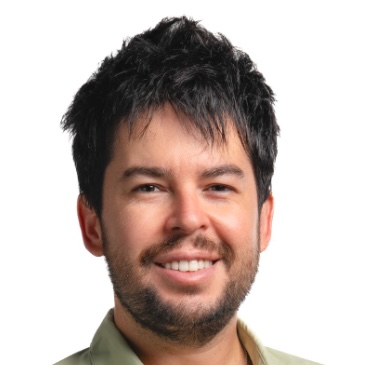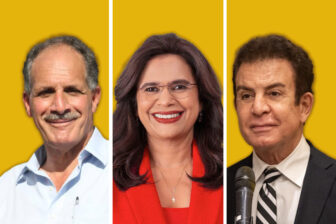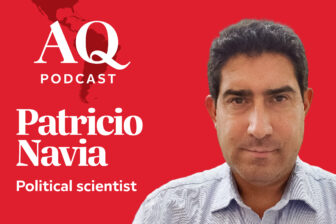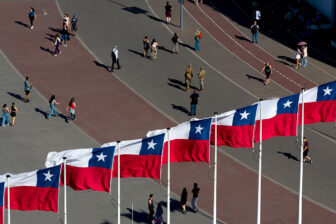Four years ago, democracy in Honduras made a stunning comeback. After 12 years of increasing authoritarian rule, an opposition coalition led by Xiomara Castro unseated the conservative Partido Nacional (PN). With the victory, Castro became the first woman elected president of the country.
Months after Castro’s inauguration, in January 2022, Hondurans witnessed the dramatic fall of the once-powerful Juan Orlando Hernández. The former president, who was by then known for tampering with elections and term limits, was extradited to the U.S. on drug trafficking charges, where he is currently serving a 45-year prison sentence.
At long last, democracy was moving in the right direction—or so it seemed.
Fast-forward to the present, and the optimism surrounding Castro’s rise has largely faded. Hondurans are now bracing for what will likely be one of Latin America’s most contentious elections this year. On November 30, voters will elect a new president and renew the 128-seat unicameral legislature, as well as all local posts in its 298 municipalities. In the months leading up to the vote, tensions between the left-wing government and the conservative opposition have spiraled out of control.
For many, the ruling party’s actions have raised concerns about its commitment to elections—and the future of Honduran democracy. Castro, for her part, has placed the blame on the opposition for plotting an “electoral coup.”
Not surprisingly, the election has drawn international scrutiny. The U.S. maintains an outsized influence in the country and has vowed to respond to any electoral irregularities. As the U.S. ramps up its military presence in the Caribbean, Honduran ruling party officials will not take threats lightly.
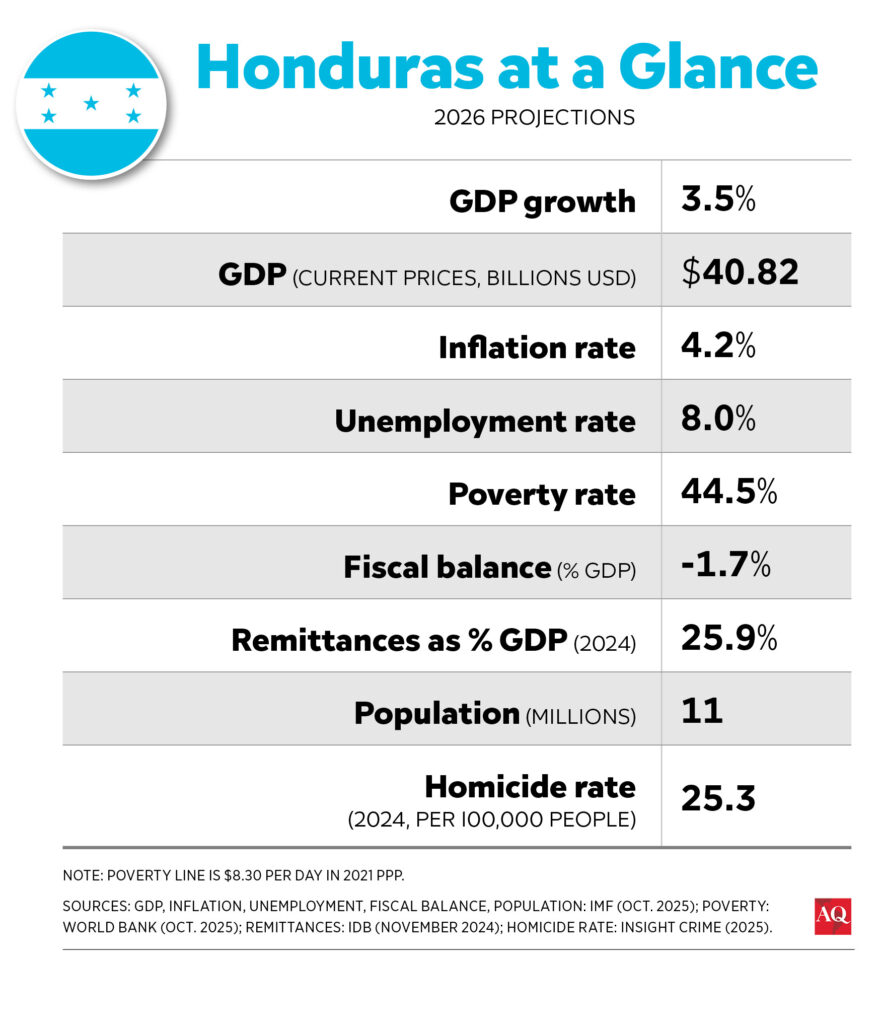
From hope to dismay
In 2022, Castro’s administration got off to a quick start. Months into her presidency, she passed key laws with the opposition’s support. But the momentum quickly faded. The coalition of leftist and centrist parties that was essential for Castro’s victory broke apart. The left-wing government adopted an increasingly hostile attitude towards the private sector, the political opposition, and civil society organizations. Much of the responsibility seems to reside with her husband, former President Manuel Zelaya, who many say retains immense power. The government’s shift was met with backlash from the opposition and, ever since, both camps have engaged in a constant barrage of attacks, fueling polarization.
Unkept promises and controversies drove discontent with Castro’s government. Take corruption as an example. Castro promised to reach an agreement with the United Nations to create the International Commission against Impunity in Honduras (CICIH). However, as her government nears its end, the CICIH is nowhere near becoming a reality.
Public security added to the disappointment. In late 2022, Castro sought to replicate Nayib Bukele’s crackdown on crime, declaring a state of emergency to wage a “war against extortion.” While, to her credit, the homicide rate in Honduras did fall, gangs remain as powerful as ever, and violence is widespread. Zelaya himself has conceded that applying Bukele’s model was “out of touch with reality.”
However, it is the ruling party’s alleged ties to criminal organizations that dealt the biggest blow to the government. For years, Castro and her left-wing Libertad y Refundación (LIBRE) party decried a narco-dictadura led by former president Hernández. Yet a secretly recorded video from 2013 published last year cast doubts on LIBRE’s commitment to fighting drug trafficking. The video showed a meeting between Castro’s brother-in-law, former Congressman Carlos Zelaya, negotiating campaign contributions with known drug traffickers. Carlos Zelaya noted that half of the funds would go to the Comandante, a known nickname of Manuel Zelaya.
The scandal rocked the ruling party to its core. Carlos Zelaya resigned from Congress. Castro stated Manuel Zelaya did not have knowledge of his brother’s dealings, and that his actions constituted a “deplorable error.” She also condemned the video as part of a coup plot against her government. While the case is still ongoing, and those involved deny wrongdoing, many worry about its prospects, especially after the attorney general appointed by Castro stated that it will not be “easy to uncover the truth.”
Meanwhile, Castro’s administration repeatedly clashed with the U.S. on several fronts. Time and again, she advocated for left-wing dictatorships in Cuba, Nicaragua, and Venezuela. When the U.S. Ambassador raised concerns about a joint meeting between the Honduran minister of defense and his Venezuelan counterpart, Castro threatened to pull the plug on the extradition agreement with the U.S. (she eventually backtracked on her decision). On his first trip to Central America as Secretary of State, Marco Rubio skipped Honduras, reinforcing the notion that relations between the two countries are at a low point.
All this has impacted the campaign of the ruling party candidate, Rixi Moncada. As a long-time ally of the Zelaya family, Moncada won LIBRE’s presidential primary by a landslide. But that core asset may also be a liability, as some polls show her trailing other candidates.
Red flags
Since the start of the campaign, signs of tensions have raised concerns. General Roosevelt Hernández, the outspoken Chairman of the Joint Chiefs of Staff, professed his “loyalty” to Castro and stated that the military is, indeed, a ”political” force. Johel Zelaya, the attorney general designated by Castro, has opened several investigations into the opposition, while simultaneously dismissing cases involving ruling party officials. Cossette López, an opposition representative on the National Electoral Council, has stated that her life is at risk due to attacks from her LIBRE counterpart.
More recently, pro-government legislators created a Comisión Permanente, a nine-member committee tasked with overseeing legislation during the congressional recess. They ignored opposition calls to keep Congress open during the election.
Complicating the scenario, the nation’s electoral system is itself a source of concern. The March primaries were marred by significant delays in the delivery of electoral materials, forcing voters to wait well into the night to cast their ballots. There are growing fears that the general election will suffer similar problems.
History has a way of repeating itself. LIBRE under Castro has adopted a similar authoritarian playbook as the Partido Nacional under Hernández. While the ruling party’s actions hint at a power grab, an autocratic regression is not a foregone conclusion.
Opposition parties are still strong. In the March presidential primaries, the opposition won two-thirds of votes. The problem, however, is that those parties remain divided. The Partido Liberal’s candidate, Salvador Nasralla, and the Partido Nacional’s standard-bearer, Nasry Asfura, are both competing against LIBRE for the presidency. The divisions may make it harder for them to stand up for democracy.
On election night, all three candidates—Moncada, Nasralla, and Asfura—may well try to claim victory before the official vote tallies are in. Unless a candidate wins by a landslide and the losers concede defeat, many expect the election will only be the beginning of a difficult new chapter for Honduras’s embattled democracy.


